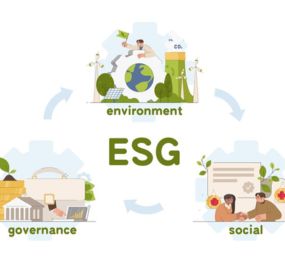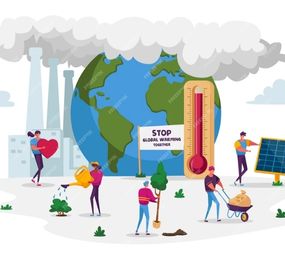Adapting to a changing climate is no longer a choice but a necessity for businesses navigating the complexities of the modern world. To thrive in the face of environmental risks, companies must adopt strategies that enhance climate resilience and promote sustainability.
Sustainable supply chains are a cornerstone of climate resilience. By assessing and mitigating climate-related risks throughout the supply chain, businesses can reduce vulnerabilities and ensure continuity of operations. Diversifying suppliers, embracing circular economy practices, and prioritizing resource efficiency contribute to a resilient supply chain that can weather the impacts of climate change.
Technological innovation plays a crucial role in climate resilience. Businesses can leverage adaptive technologies to monitor and respond to climate-related challenges effectively. From smart sensors that track environmental conditions to data analytics that inform decision-making, technology empowers businesses to anticipate, adapt, and thrive in the face of environmental risks.
Climate-smart infrastructure is another key consideration. Designing and constructing facilities with climate resilience in mind can minimize the impact of extreme weather events. This includes implementing green building practices, creating robust water management systems, and ensuring energy efficiency to reduce carbon footprints.
Comprehensive risk management is integral to climate resilience. Businesses need to identify, assess, and prioritize climate-related risks, incorporating them into overall risk management strategies. This proactive approach enables organizations to develop contingency plans, ensuring they are well-prepared for potential disruptions.
Corporate sustainability initiatives contribute significantly to climate resilience. By setting and achieving sustainability goals, businesses not only reduce their environmental impact but also build a foundation for long-term resilience. Engaging with stakeholders, fostering a culture of environmental responsibility, and aligning business strategies with climate action further reinforce a company's commitment to climate resilience.
In conclusion, businesses must proactively embrace climate resilience strategies to navigate the environmental risks posed by climate change. From supply chain sustainability to adaptive technologies, the path to a climate-resilient future involves a holistic and forward-thinking approach that ensures businesses not only survive but thrive in an ever-changing climate landscape.
To register or learn more about the Forum please check here: https://www.leadventgrp.com/events/world-esg-and-climate-summit/details
For more information and group participation, contact us: [email protected]
















